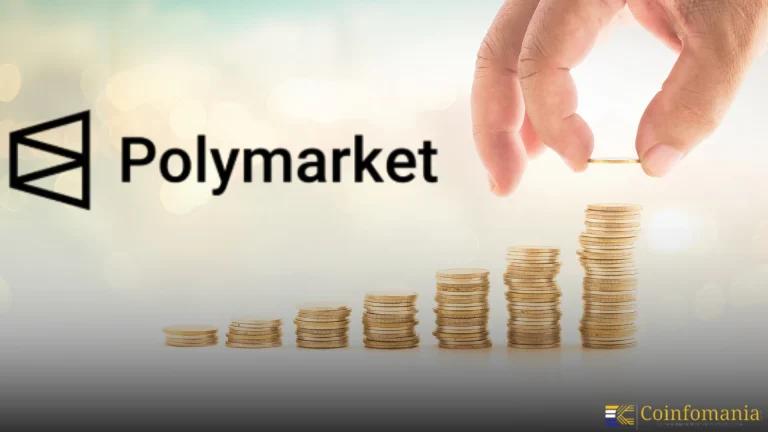Marketnode CEO Rehan Ahmed Unveils On-Chain Expansion Plans in $140T Equity Market
Let’s explore how onchain assets are reshaping finance as Marketnode CEO Rehan Ahmed discusses tokenization in a Chainlink interview.

In a recent Chainlink series interview, Marketnode Rehan Ahmed shared insights on digital finance infrastructure. He noted global equity markets total about $130T, and also said that funds under management equal around $140T. He added that onchain assets currently range between two and five billion dollars. Ahmed called this portion small but fast-growing. He said these digital assets show a deeper shift in finance. Institutions now explore programmable assets to reshape capital markets.
Ahmed described a phased transition in blockchain adoption. He explained that current blockchain use focuses on efficiency. Smart contracts and better recordkeeping drive these gains. He said Marketnode’s Singapore branch automates post-trade processes using blockchain tools. While tokenization draws interest, he noted this field remains early. He clarified that most efforts go toward building systems and refining legacy workflows. Improving existing processes takes priority over full-scale tokenization. This approach sets a strong foundation for future digital asset services.
The Role of Blockchain in Modernizing Financial Operations
Currently, finance teams use blockchain mainly for internal upgrades. For example, fund managers apply smart contracts to speed operations. These tools show clear efficiency benefits. Wider onchain assets distribution requires agreed-upon digital formats. Ahmed compared this to the music world adopting MP3 files. That change made services like Spotify possible. This focus contrasts with replacing legacy workflows completely. He argued that laying the groundwork must come before large-scale adoption. Standardized formats will enable seamless use of on-chain assets across the finance industry.
Two Strategic Paths to Asset Tokenization in Financial Markets
Ahmed outlined two strategies for asset tokenization in market structure. One digitizes private, illiquid assets to broaden investor access. The other improves large, liquid instruments for efficiency gains. Small gains in efficiency can make a big impact. Marketnode focuses on liquid loans, funds, and structured products. They target loans with settlement cycles like T plus forty-five days. Tokenization can shorten these cycles significantly. This method addresses pain points in legacy settlement processes quickly. This approach clearly shows the benefits of applying blockchain automation to established financial instruments.
He also noted that digitization does not suit every asset class equally. Public equities already work well in current brokerage systems. Tokenizing public shares adds little value for market access. Marketnode Rehan Ahmed advised focusing on classes with clear inefficiencies. Loans and structured instruments often face slow settlement and high costs. Applying tokenization to these areas can offer measurable improvements. Marketnode aims to deliver real gains by prioritizing assets needing more efficiency. This selective approach ensures that tokenization resources go where they matter most.
Interoperability as the Foundation for On-chain Asset Expansion
Interoperability is key for broader onchain assets adoption. Marketnode CEO said integration with legacy systems is the first challenge. Connecting blockchain tools to old finance platforms takes time. Only after this step can cross-chain features be built. Seamless communication across blockchains will become vital. Traditional and digital asset systems likely will coexist. Issuers and asset owners can choose their preferred format freely. On-chain assets will complement established methods rather than replace them. Ahmed expects digital issuance to become natural over time. This shift relies on clear efficiency benefits, not novelty.
How Blockchain and AI Could Transform Capital Markets?
Marketnode CEO mentioned that blockchain must work with AI and machine learning for full benefits. Combining these tools could speed transaction processing and settlements. They may also enable new financial models now in infancy. Short-term onchain assets growth may seem slow. However, long-term change could be transformative. As infrastructure and interoperability improve, the finance industry will evolve gradually. In the next decade, digital infrastructure and tokenization may redefine global capital flows and system efficiency. This trend could reshape how capital moves across markets worldwide.
Follow us on Google News
Get the latest crypto insights and updates.
Related Posts

Trader Turns $58K Into Nearly $490K in One Week on Hyperliquid
Triparna Baishnab
Author

Crypto Shorts Get Crushed as $190 Million Liquidation Wave Signals Sudden Market Reversal
Triparna Baishnab
Author

Polymarket Odds Signal Lower China–Taiwan War Risk
Triparna Baishnab
Author